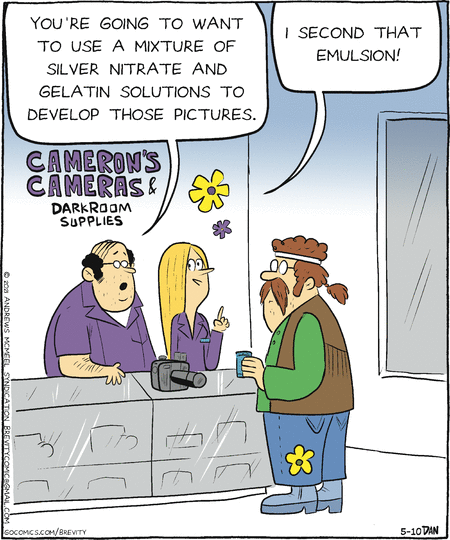CSotD: Mostly not politics
Skip to comments
This Reply All (WPWG) ran a couple of days ago, but it anticipated yesterday’s CDC announcement that you can stop masking if you’ve been vaccinated.
The announcement has been greeted with joyous political cartoons, but over in Stripland it means we’re going to discover a lot of cartoonists’ lead times because there will continue to be masks there for awhile.
We’ll also find out how quickly store owners can move. Our Price Choppers took out the one-way aisle markers a few weeks ago, Deo gratias, but I suspect there will be a lag before the mask signs come down because Headquarters will have to make the call.
And, yeah, it’ll take some adjusting to stop wearing them out of solidarity.

We could whip the drug problem in a month, if all crooks were as cooperative as fentanyl dealers, who, Kirk Walters (KFS) suggests, are willing to stop at well-run border stations and declare themselves, if only someone would ask.

When I was a reporter on the northern border, we’d have these big press conferences to announce major busts, but, obviously, we didn’t have announcements of how much stuff was getting through, because, unlike fentanyl dealers, coke and heroin dealers lie when you ask them what they’re bringing in.
I remember one case in which a Nigerian mule named Aful was traveling with his three-year-old daughter, but they were delayed enough that the quantity of cocaine he had swallowed didn’t remain swallowed.
It was in condoms tied up with dental floss, and looked like inch-long rolls of nickels. He, understandably, didn’t want to return them whence they came, so he bought his daughter a stuffed dinosaur, pulled out the stuffing and filled it with most of the condoms. What wouldn’t fit in the dinosaur he put in her moon boots, which made her walk funny which got him busted.
Also, he wasn’t much of a tailor and the lumpy dinosaur’s seam didn’t pass muster.
The authorities persuaded Aful to continue to Albany and meet his contact there, and then held a press conference.
I slugged my story “Aful and his cronies are soon thwarted,” but the editor put a different headline on it.
So it goes.

Speaking of busted crooks, I got a laff out of this Pros & Cons (KFS). Kieran Meehan has a way of capitalizing on the obvious that consistently cracks me up.

Stephan Pastis also gets credit for picking up on foolishness, and this Pearls Before Swine (AMS) makes fun of the current trope about stepping on Legos in the dark.
First of all, as the strip suggests, it’s much ado about nothing, at least in the Grand Scheme.
Besides, as someone pointed out the other day, anyone who complains about stepping on Legos is too young to remember jacks.
But the main issue is that anyone with kids has learned to kind of shuffle in the dark and not put your foot down hard until you’re sure there’s nothing but floor under it.
And Legos are a choking hazard. By the time your kid is old enough to have Legos, you’ve long since learned to tread softly.

Frazz (AMS) brings to mind the Olden Days, when vegetables were routinely boiled to mush, a practice that ended in the early 70s when stir-frying came into vogue and we discovered that semi-crisp veggies taste better than sodden ones.
“Just like Grandma used to make” was a dubious claim, given that the Greatest Generation weren’t the Greatest Cooks. They had discovered frozen dinners and Chef Boy-Ar-Dee, and they still clung to canned vegetables, a category that doesn’t get much shelf space in today’s stores but was a whole aisle back then.
I’ll fault Jef Mallett for putting the observation about imports in the kid’s mouth, since he’d take it for granted. I’m not sure even Frazz is old enough to remember when various fruits and vegetables came into season and appeared only for brief periods on the shelves.
They weren’t around long, but they sure tasted a whole lot better than “pretty good.”
Juxtaposition of the Day


David Cohen is correct that a lot is left out of history texts.
I’ll argue with the pun because you can’t erase what was never there, but he’s right that institutional racism is a large reason for what is taught in classrooms.
Nobody says, “I hate those people. Let’s not teach about them.” (Except, now, the Project 1619 critics.)
Rather it’s a process of teaching about People Who Matter, which is only slightly different.
Teaching about the United States as it existed at a given time means Hispanic people don’t count until we — note the word “we” — get there and Indians never really count at all. Both are mentioned as curiosities.
And there were three Black people in America: Harriet Tubman, Frederick Douglas and Booker T. Washington, so we put them each in a colored box on a page somewhere.
But we don’t weave them into the text because they, too, are more a curiosity than part of the central narrative.
And also, school boards in Texas insist that “the War Between the States” was about states’ rights, not slavery, and they buy enough textbooks that we all have to go along with it.
The idea that Lewis & Clark’s trail didn’t exist until they got there is exactly the issue.
If you read the actual history, they relied on the people who knew where the trails already were.
It’s a good gag, mostly because it’s deeper than the usual “Columbus on the seashore” iteration of this discovery idea.
It’s not just that the Indians were already here, but that they had functioning societies that deserve respect. The fact that they hadn’t developed metallurgy or gunpowder does not mean they weren’t intelligent, sophisticated people.
To teach about minorities as a sideline is unconscious racism. To teach them as a curiosity is conscious racism.
We need to rethink our approach.
But we won’t. We’ll just add a few more colored boxes to run along with the same old narrative.

Ending on a lighter note, I’d like to thank Dan Thompson for at least making this Brevity (AMS) earworm a pleasant one.
Comments 7
Comments are closed.